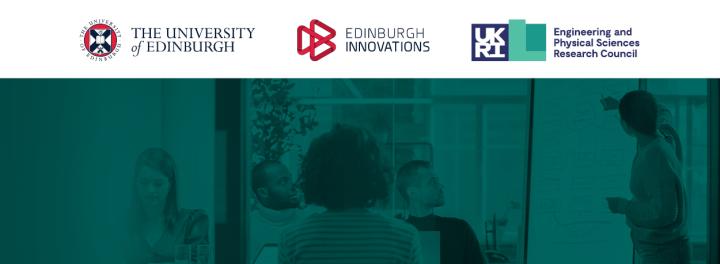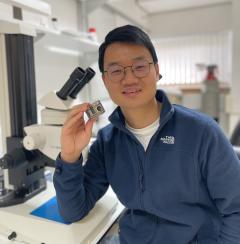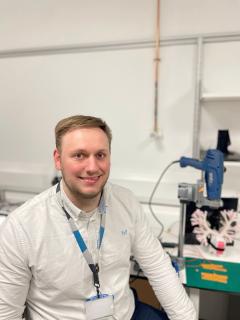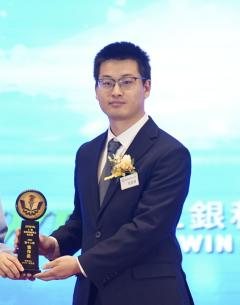EPSRC IAA Innovation competition
Early Career Researchers funds to create impact from your research are available on an ongoing basis. Double the number of awards now available: at least 15 awards to be made in 2024!

The EPSRC IAA is offering a personal award of up to £2,500 to develop and validate an impact opportunity stemming from your research.
The award is open to all University research-active staff working within the EPSRC remit who identify as early career researchers. **Applications are encouraged from all early career researchers from any subject area within remit.
Example projects:
- Validation/characterisation/development/prototyping of devices/models/interventions for specific uses by financing e.g. facilities access and consumables.
- Investigation of user need or engagement with stakeholders/impact partners by financing e.g. meetings, user engagement, participation incentives.
The EPSRC IAA is committed to equality of opportunity for all eligible applicants. The University has a long-standing commitment to equality, diversity, and inclusion and to promoting a positive culture which celebrates difference, challenges prejudice, and ensures fairness.
PhD students cannot be funded. Applicants must discuss with their PI before submitting unless they are independent researchers.
Timeline
Deadlines are rolling and applications are reviewed and awarded on a first come first serve basis.
Guidelines
The award can be used for anything except staff time that supports the development of an opportunity to create impact from your research, for example by developing concepts, testing, modification, characterisation, synthesis, prototyping, engaging potential collaborators, or impact related upskilling/training courses. The award can pay for things such as consumables, research expenses, facility access, training, market research, data, fees, or services.
**Note from UKRI on identification of an early career researcher: There is no hard-and-fast definition of what constitutes an early career researcher, but they have often been defined as a researcher within eight years of their PhD viva or within six years of their first academic appointment. However, we recognise that these definitions do not recognise the wide range of career paths possible for researcher, and so UKRI considers anyone who identifies as an early career research to be one.
Application
The process is fast and easy. If applying, please make sure that you discuss with your PI first, unless you are an independent researcher.
- Register your interest and we will provide you with the application form.
- Once you have discussed your idea with your PI you will be able to submit your application. We recommend independent researchers to discuss with their line managers.
- The application is a 600-word application where you explain how you would use the prize, what you would be able to achieve, and how you would try to develop your project further.
Successful applicants

I am using the EPSRC IAA funding to explore my independent ideas. Without it I wouldn't have been able to start synthesising and verifying my modification of superhard materials that we’re working on in the research group. Once the idea is validated, I can go ahead to develop a proposition to industry.
- Dr Akun Liang, Postdoctoral Research Associate, School of Physics and Astronomy

I have, with a team of researchers, worked on shape estimation of robotic bronchoscopes that we would like to commercialise with the help of Edinburgh Innovations. EPSRC IAA funding has allowed me to take a new idea for shape estimation and do the basic experiments required to create marketable intellectual property.
– Dr David Hanley, Research Associate at the School of Informatics

My research suggests that novel designs of a tidal turbine blade can enable an increased power output, which could help make tidal energy viable. The EPSRC IAA funding has made it possible to test the proposed approach by benchmark experiments and close interaction with potential industry partners.
– Dr Yabin Liu, Royal Commission for the Exhibition of 1851 Brunel Fellow at the School of Engineering

I'm doing research that can extend the life of perovskite solar cells (PSCs), a key aspect to make them commercially viable. The EPSRC IAA has funded my travel to the leading manufacturer PSCs to pursue opportunities to collaborate. We're then hosting the company for a repeat visit to Edinburgh later in the year.
– Dr Yue Hu, Lecturer in Photovoltaic Materials Chemistry at the School of Chemistry

